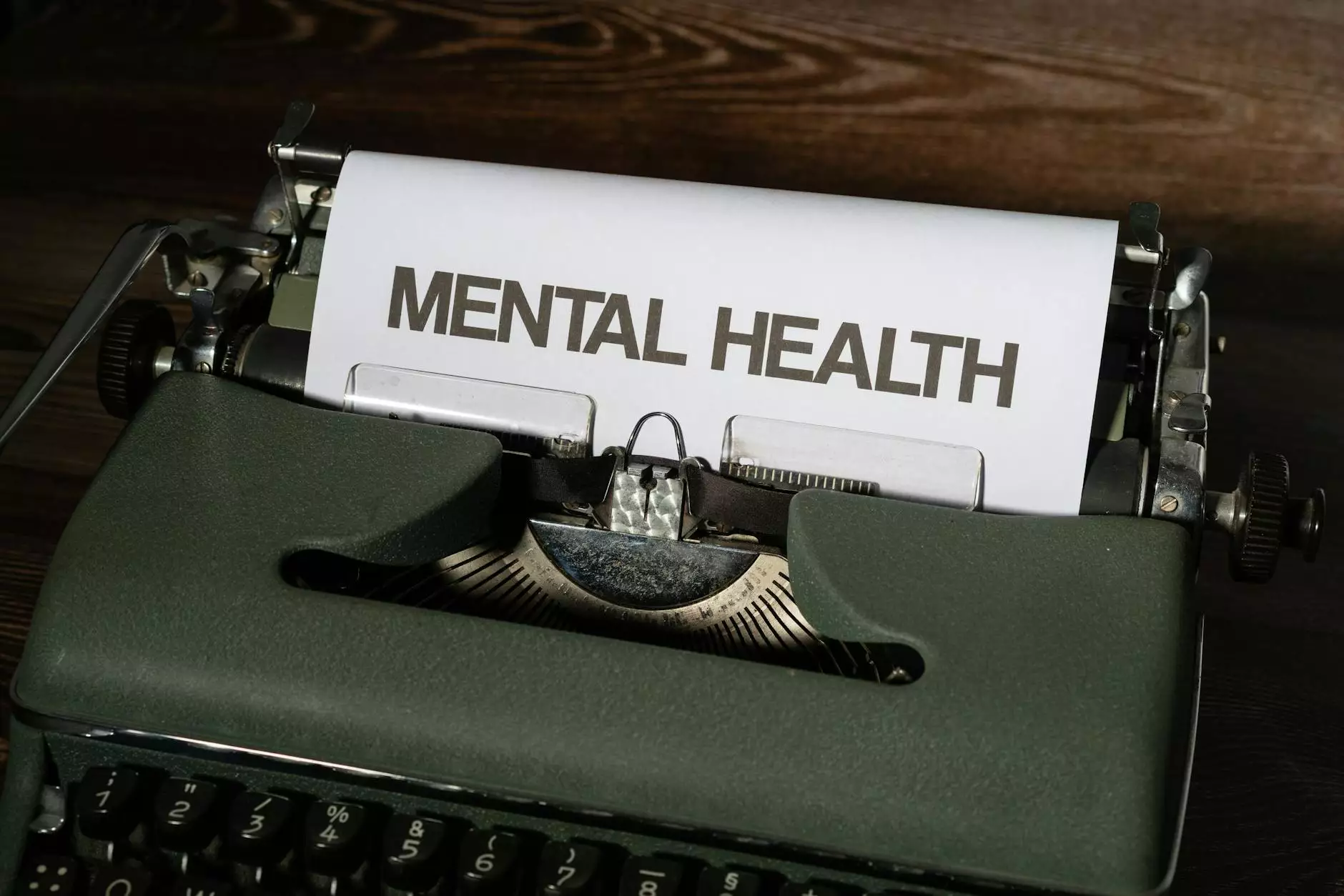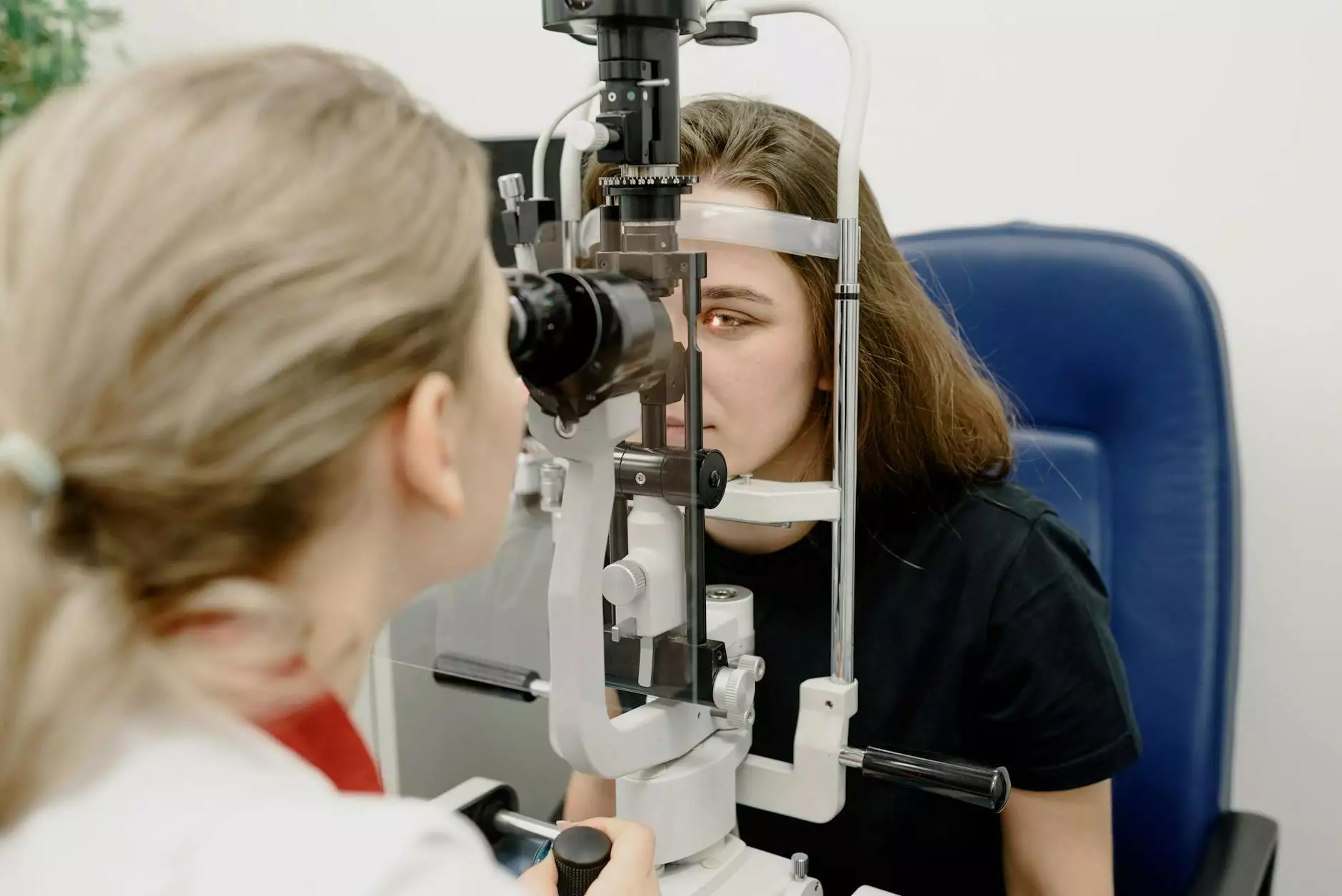Myths and Facts About Mental Health
Blog
Welcome to Richard Martinez, MD, your trusted source for reliable information and expert advice on mental health. In this article, we aim to provide you with comprehensive insights into the myths and facts surrounding mental health. By debunking common misconceptions, we hope to promote better understanding and increase awareness about mental health issues.
Understanding Mental Health
Mental health is an essential aspect of our overall well-being, yet it is often misunderstood or overlooked. It encompasses our emotional, psychological, and social well-being, affecting how we think, feel, and act. Just like physical health, maintaining good mental health is crucial for leading a fulfilling and productive life.
Debunking Myth: Mental Illness is Rare
Contrary to popular belief, mental illness is not as rare as one might think. In fact, it is more common than you might imagine. According to the World Health Organization (WHO), approximately 1 in 4 people globally experience mental health issues at some point in their lives. Mental illnesses can manifest in various forms, including depression, anxiety disorders, bipolar disorder, and schizophrenia.
Fact: Mental Health is Equally Important as Physical Health
It is crucial to recognize that mental health is just as important as physical health. Both are integral components of our overall well-being, and neglecting one can have adverse effects on the other. Taking care of our mental health involves engaging in self-care practices, seeking professional help when needed, and fostering supportive relationships. Just as we prioritize physical wellness, we must prioritize our mental well-being to live a balanced life.
Common Myths About Mental Health
Myth: Mental illnesses are a sign of weakness
This misconception often leads to stigmatization and discrimination against individuals with mental health conditions. Mental illnesses are not a result of personal weakness or character flaws. They are medical conditions that can be effectively managed with appropriate treatment and support.
Myth: Only "crazy" or "dangerous" people have mental illnesses
Mental illnesses do not discriminate based on stereotypes. They can affect anyone, regardless of age, gender, or background. It is essential to challenge such stigmatizing beliefs and foster a more inclusive and understanding society.
Myth: People with mental health issues are incapable of leading fulfilling lives
This myth undermines the potential of individuals with mental health conditions. With proper treatment, support, and self-care, individuals with mental illnesses can manage their symptoms and lead fulfilling lives. They can pursue successful careers, maintain meaningful relationships, and contribute to society.
Dispelling Common Misconceptions
Misconception: Seeking Help is a Sign of Weakness
One of the prevailing misconceptions about mental health is the belief that seeking help is a sign of weakness. In reality, seeking help is a sign of strength and self-awareness. Just as we consult medical professionals for physical ailments, it is equally important to reach out to mental health professionals when facing mental health challenges. Seeking support, therapy, or medication does not make an individual weak, but rather showcases their willingness to prioritize their well-being.
Misconception: Mental Health Conditions are Permanent
Contrary to popular belief, mental health conditions are not always permanent. With appropriate treatment and support, many individuals experience improvements in their mental health over time. Seeking early intervention and adopting healthy coping mechanisms can contribute to better management and even recovery from certain conditions.
The Role of Education and Awareness
Education and awareness play pivotal roles in combating mental health stigma and promoting a better understanding of mental illnesses. By dispelling myths and spreading accurate information, we can create a supportive environment that encourages individuals to seek help when needed and fosters empathy towards those living with mental health conditions.
Eliminating Stigma Through Conversations
Open and honest conversations about mental health can help eliminate stigma and foster empathy. By sharing personal experiences, insights, and knowledge, we can create supportive networks and uplift individuals who may be struggling. Richard Martinez, MD is dedicated to providing a safe space for discussing mental health, breaking down barriers, and promoting healthy dialogue.
Fostering a Mentally Healthy Society
As a society, it is crucial that we prioritize and invest in mental health. By fostering a mentally healthy society, we can ensure that individuals receive the support and resources they need to thrive. This includes promoting mental health awareness in schools, workplaces, and communities, as well as advocating for policies that prioritize mental health care.
Making Mental Health a Global Priority
In conclusion, Richard Martinez, MD acknowledges the importance of addressing the myths and facts surrounding mental health. By providing accurate and comprehensive information, we hope to empower individuals to seek help, support, and treatment for mental health concerns. Together, we can promote understanding, eliminate stigma, and create a mentally healthy society.










